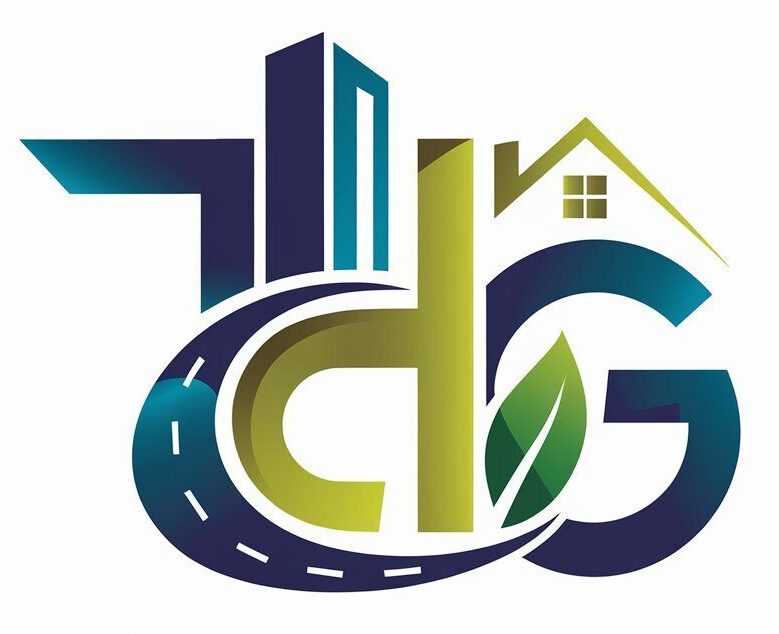Best Energy Efficient Solutions
Best Energy-Efficient Solutions for Custom Homes
Building a custom home offers homeowners the opportunity to incorporate innovative, energy-efficient solutions that can enhance comfort, reduce long-term energy costs, and minimize environmental impact. As energy efficiency becomes increasingly important, many homeowners are choosing to integrate green technologies and sustainable design into their custom homes. From solar power systems to advanced insulation techniques, energy-efficient solutions can significantly reduce energy consumption while improving the overall quality of life in your home.
In this article, we will explore some of the best energy-efficient solutions for custom homes, focusing on the most effective technologies and design practices for creating a sustainable living space.
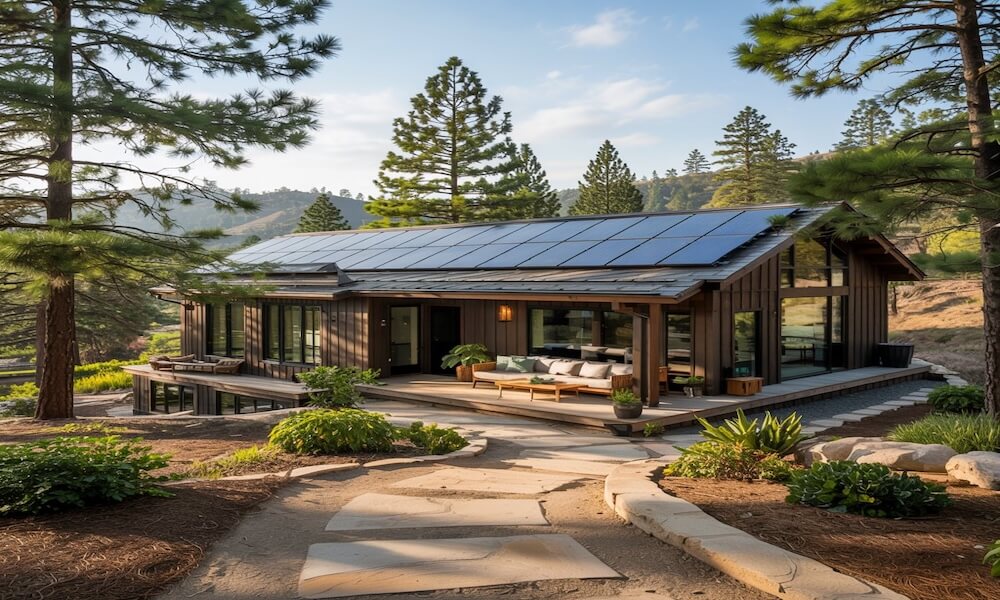
1. Solar Energy Systems
One of the most popular and effective ways to increase the energy efficiency of a custom home is by installing a solar power system. Solar panels harness energy from the sun to generate electricity, reducing dependence on the electrical grid and lowering utility costs.
Types of Solar Systems:
- Photovoltaic (PV) Panels: These are the most common type of solar energy systems, using sunlight to produce electricity for your home. They can be installed on rooftops or integrated into the home’s design, such as with solar roof tiles.
- Solar Water Heating Systems: These systems use the sun’s energy to heat water for domestic use, including for showers, baths, and space heating.
- Solar Battery Storage: Coupled with solar panels, battery storage systems like the Tesla Powerwall allow you to store excess energy generated during the day for use at night or during periods of low sunlight.
Benefits:
- Lower Energy Bills: Solar panels can significantly reduce electricity bills by generating free, clean energy from the sun.
- Energy Independence: Solar energy systems allow homeowners to produce their own power, making them less reliant on the grid.
- Environmental Impact: Solar energy is a renewable resource and helps reduce carbon emissions, making it a sustainable choice for eco-conscious homeowners.
Considerations:
- Initial installation costs can be high, but tax incentives, rebates, and the long-term savings on energy bills can make solar power an excellent investment over time.
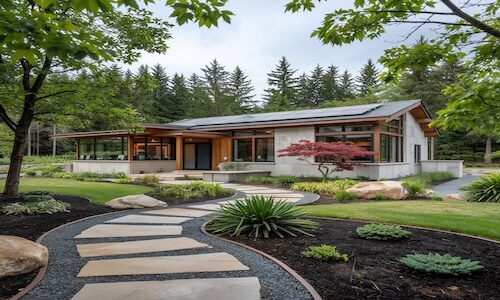
2. High-Efficiency Insulation
Proper insulation is one of the most effective ways to improve the energy efficiency of a custom home. High-performance insulation helps maintain a stable indoor temperature by reducing heat loss in winter and keeping the interior cool during summer.
Types of Insulation:
- Spray Foam Insulation: Known for its superior air-sealing qualities, spray foam expands upon application, filling gaps and cracks that traditional insulation might miss. It provides a high R-value (resistance to heat flow), making it ideal for both attics and walls.
- Rigid Foam Insulation: This type of insulation is often used in areas that require moisture resistance, such as basements (ideal for multi-generational homes) or crawl spaces. It has a high thermal resistance, making it a good option for colder climates.
- Cellulose Insulation: Made from recycled paper products, cellulose insulation is an eco-friendly option with excellent soundproofing properties. It is often blown into attics or walls.
Benefits:
- Improved Comfort: Proper insulation helps maintain a consistent indoor temperature, reducing the need for heating and cooling.
- Energy Savings: Homes with high-performance insulation require less energy to heat and cool, lowering energy bills.
- Soundproofing: Insulation can also improve soundproofing, making the home quieter and more private.
Considerations:
- Choosing the right type of insulation for specific areas of your home is important to maximize its effectiveness.
3. Energy-Efficient Windows and Doors
Windows and doors are critical to a home’s energy efficiency, as they are often the main sources of heat loss or gain. Energy-efficient windows and doors are designed to minimize heat transfer and reduce the workload of heating and cooling systems.
Types of Energy-Efficient Windows:
- Double or Triple-Paned Glass: These windows are designed with two or three layers of glass, separated by an insulating gas, such as argon, to reduce heat transfer.
- Low-E Glass Coatings: Low-emissivity (Low-E) coatings are applied to windows to reflect infrared light and UV rays, which helps maintain the home’s temperature while allowing visible light to pass through.
- Energy Star Windows: Energy Star-rated windows are tested for their ability to insulate and reduce energy loss. Choosing windows that meet or exceed Energy Star standards ensures you are getting the most energy-efficient options available.
Benefits:
- Reduced Heating and Cooling Costs: Energy-efficient windows help keep warm air inside during winter and cool air inside during summer, reducing the need for air conditioning or heating.
- Improved Comfort: Properly installed, energy-efficient windows reduce drafts and temperature fluctuations, improving overall comfort.
- Noise Reduction: Double and triple-pane windows provide soundproofing benefits, reducing outside noise and improving interior peace and quiet.
Considerations:
- High-quality windows and doors can be an investment, but the long-term energy savings and enhanced comfort make them a worthwhile upgrade.
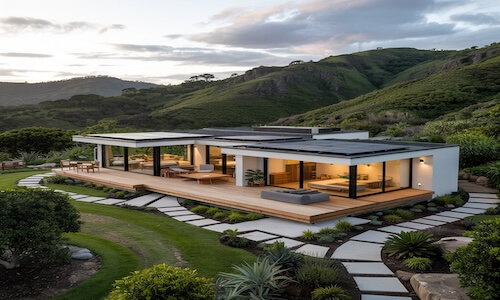
4. High-Efficiency HVAC Systems
An energy-efficient heating, ventilation, and air conditioning (HVAC) system is essential for maintaining indoor comfort while minimizing energy consumption. The latest HVAC technology offers improved efficiency, better air quality, and reduced environmental impact.
Types of High-Efficiency HVAC Systems:
- Variable Speed HVAC Systems: These systems adjust their fan speed and heating or cooling output to match the needs of your home, improving energy efficiency compared to traditional systems that run at a constant speed.
- Geothermal Heat Pumps: These systems take advantage of the earth’s constant temperature to heat and cool your home efficiently. Geothermal systems use the ground as a heat source in winter and a heat sink in summer.
- Ductless Mini-Split Systems: For homes without ductwork, mini-split systems provide zoned heating and cooling. These systems allow homeowners to control the temperature in individual rooms, leading to reduced energy use.
Benefits:
- Lower Energy Bills: Energy-efficient HVAC systems use less power to maintain the desired temperature, lowering overall utility costs.
- Improved Indoor Air Quality: Many high-efficiency HVAC systems come with built-in filtration systems that help remove dust, allergens, and pollutants from the air.
- Zoning Options: Ductless and variable speed systems allow for better zoning, meaning you can heat or cool only the areas of the house you’re using, saving energy in unused spaces.
Considerations:
- Initial costs for advanced HVAC systems may be higher, but the long-term energy savings and improved home comfort make these systems a smart investment.
5. Energy-Efficient Lighting
Switching to energy-efficient lighting is one of the simplest and most affordable ways to reduce energy consumption in a custom home. LED (light-emitting diode) bulbs and CFL (compact fluorescent lamps) bulbs are more energy-efficient than traditional incandescent bulbs, lasting longer and consuming less energy.
Benefits:
- Lower Energy Consumption: LED and CFL bulbs use up to 75% less energy than incandescent bulbs, which translates into significant savings on energy bills.
- Longer Lifespan: LED bulbs can last up to 25 times longer than incandescent bulbs, reducing the need for frequent replacements.
- Better Lighting Quality: LEDs offer a wide range of color temperatures, from warm white to cool daylight, and are dimmable for better ambiance control.
Considerations:
- Although the initial cost of LED bulbs can be higher than incandescent bulbs, the long-term savings in energy and replacement costs more than make up for the difference.
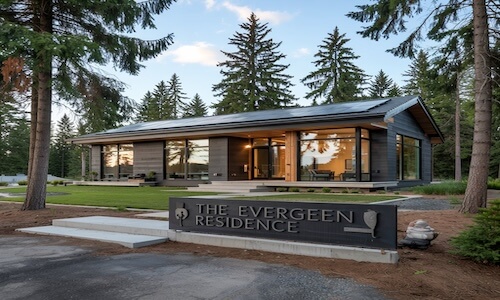
6. Smart Home Technology
Integrating smart home technology into your custom home can significantly enhance energy efficiency. Smart thermostats, lighting systems, and appliances allow homeowners to automate and control energy use, optimizing consumption based on their schedules and preferences.
Examples of Smart Home Technology:
- Smart Thermostats: Devices like the Nest or Ecobee learn your schedule and adjust heating and cooling settings automatically, optimizing energy use and saving on utility bills.
- Smart Lighting Systems: Lighting systems can be programmed to turn off when rooms are not in use or to adjust brightness levels based on natural light levels.
- Smart Appliances: Energy-efficient smart appliances, such as refrigerators, washing machines, and dishwashers, can be controlled remotely when you’re not in the area and optimized for minimal energy use.
Benefits:
- Increased Control: Smart technology allows you to control and optimize energy usage, whether you’re at home or away.
- Reduced Waste: Automation helps prevent energy waste by turning off lights and adjusting the temperature when it’s not needed.
- Convenience: Many smart home systems integrate seamlessly with your smartphone, providing convenience and peace of mind.
Considerations:
- The upfront cost of smart home devices can be high, but the convenience and long-term savings in energy bills make them a wise investment for tech-savvy homeowners.
